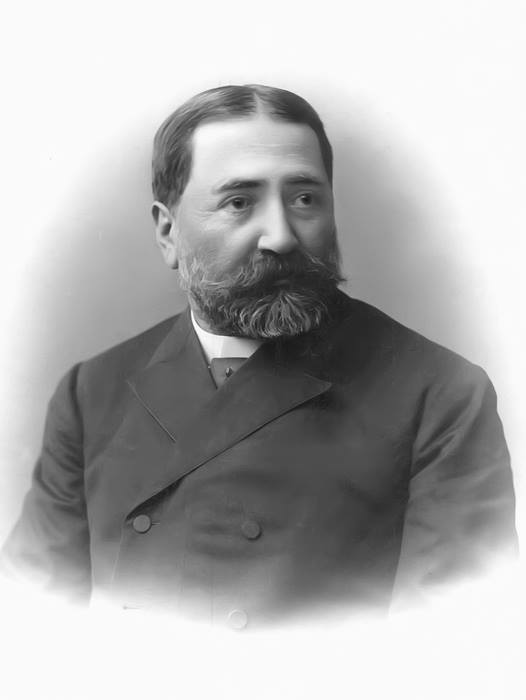
European ideas a century ago: Equality
 Equality before the law of all and every man is an essential keystone of the foundation, which underpins the orderly edifice of the human society.
Equality before the law of all and every man is an essential keystone of the foundation, which underpins the orderly edifice of the human society.
The Law is not a just law, if it allows for distinguishing the big from the small, the tall from the short in a citizenry parkour of a man. If the law was applied thus for one, and differently for the other, it would lose its greatest purpose of extending protection and aid to everyone, since it could no longer extend its grace and judgement equally to those who reach towards it for security.
By nature, the Law gives all an equal obligation, an equal right, and if it were to treat one differently from the other, it would become nothing else than an advantage legally conferred to one at the detriment of the other.
No orderly civic life can bear such inequality without annihilating itself, without being trampled down. That is why there is no enlightened state in the world which does not take equality before the law as a core source of all legislation, of all order.
In the Russian state this equality is also publicly pronounced. The legislation on justice of the late Emperor Alexander II has enshrined this equality in the Russian Empire, whose laws currently in force pledge such equality to everyone, without discrimination.
But while the observance of the law so requires from us sadly, in daily life itself, we have not eliminated old habits and desires, the life still resists the law. The grand dare to violate the right of the lesser men just because they perceive themselves mighty and their counterparts powerless.
Perhaps one can absolve a man without education, the one that has yet not understood, has not yet sensed how equality before the law is good for the country, for the happiness of the community of men. But one cannot forgive those, whose exterior at least suggests that the light of education shone upon them – however briefly – and who now occupy such a high position in their society that requires a just conduct towards all, big or small.
All of this reflection was triggered by an event reported today in the news section of our newspaper. One Imeretian [province in West Georgia] servant boy was sent by his master to fetch a carriage. He has tried with many a driver, but without success. Finally, one has agreed. Three military officers happened to be standing nearby. One of them requisitioned the carriage from the poor servant, called the policeman and told him to get rid of the protesting servant boy.
This kind of violence happens often, but gains public attention rarely. If this case were as to reach the courts, of course, it would be judged accordingly, as the one based solely on oppression. But sadly, those feeling mighty know, that the little man is not going to pursue the matter. And the violence will thus go unpunished. It is certain, that the case we reported will have the same ending: the servant boy is not going to file the complaint. Case closed.
We, however, could not stay silent.
Equality conferred by law is a civic right, equally belonging to all and thus, equally valuable to everyone. This is why we should equally care for it, equally protect it, equally defend it, if we understood anything of the workings of this world, and if we cherish honesty and civil conduct. Violation of equality is the violation of the rights of each of us and that is why we commend the outrage of the person who has notified us of the news. The dismay of those who wrote up the article is also just.
If equality, this civic right, were to be violated without punishment or reproach, none of us could even set a foot outside our door, since everyone is someone else`s little man, and the big man also have even grander ones above them. If we were to live in such a world, the society of men won`t represent an assembly of cognizant beings, but a herd of wild animals, where the might is right. To our satisfaction, the laws of today to not tolerate such conduct and – we hope – they won`t tolerate this latter case either.
Count Ilia Chavchavadze (1837-1907), Georgian writer, publicist, landmark political and civic figure of the XIX century national revival. Educated as the Lawyer in St. Petersburg University (1857-1861), Count Chavchavadze becomes acquainted with European national-liberation thinkers and becomes an active protagonist of the liberal throught in his literary writings. Having returned to Georgia, especially after 1873, he becomes one of the leading civic and political figures. From 1875 he is elected to head the Georgian Nobility Land Bank, a position he uses to promote education and charity. In 1881 he establishes the Georgian Drama Society. In 1885, joins the Society for Spread of Literacy as the Vice-President and from 1885 becomes its President. In 1877 he founded Iveria Weekly, which later became a daily newspaper. Till today, Iveria editorials remain the best examples of the Georgian liberal thought of the time. Ilia Chavchavadze was assasinated in 1907. The identity of his murderers is debated. The Soviet historiography blamed the security services of the Russian Empire. Some have blamed Bolshevik conspirators. Chavchavadze was canonised by the Georgian Orthodox Church as St. Ilia the Truthful in 1987.